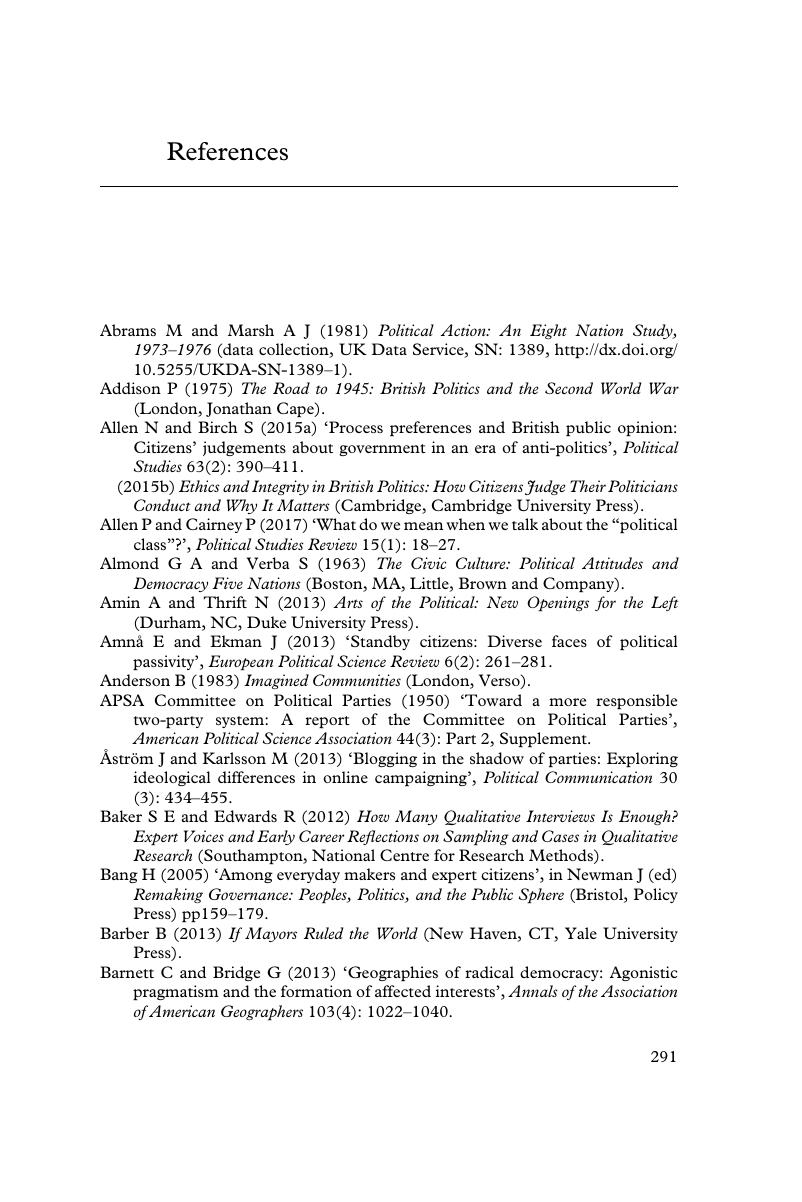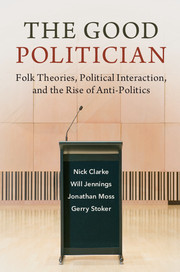Book contents
- The Good Politician
- The Good Politician
- Copyright page
- Contents
- Figures
- Tables
- Preface: The Long Road to 2016, Brexit, and Trump
- Acknowledgements
- Introduction
- 1 The Problem of Anti-Politics
- 2 Taking the Long View and Listening to Citizens’ Voices
- 3 Beyond Trendless Fluctuation: The Broadening Social Scope of Anti-Politics
- 4 Beyond Permanent Apathy: The Broadening Political Scope of Anti-Politics
- 5 Beyond the Decline of Deference: The Rising Intensity of Anti-Politics
- 6 Beyond Depoliticisation: The Persistent Force of Stealth Democratic Folk Theories
- 7 Changing Images of the Good Politician
- 8 Changing Modes of Political Interaction
- 9 Changing Folk Theories: From Stealth Democracy to Stealth Populism
- Conclusion
- Appendix
- References
- Index
- References
References
Published online by Cambridge University Press: 26 April 2018
- The Good Politician
- The Good Politician
- Copyright page
- Contents
- Figures
- Tables
- Preface: The Long Road to 2016, Brexit, and Trump
- Acknowledgements
- Introduction
- 1 The Problem of Anti-Politics
- 2 Taking the Long View and Listening to Citizens’ Voices
- 3 Beyond Trendless Fluctuation: The Broadening Social Scope of Anti-Politics
- 4 Beyond Permanent Apathy: The Broadening Political Scope of Anti-Politics
- 5 Beyond the Decline of Deference: The Rising Intensity of Anti-Politics
- 6 Beyond Depoliticisation: The Persistent Force of Stealth Democratic Folk Theories
- 7 Changing Images of the Good Politician
- 8 Changing Modes of Political Interaction
- 9 Changing Folk Theories: From Stealth Democracy to Stealth Populism
- Conclusion
- Appendix
- References
- Index
- References
Summary

- Type
- Chapter
- Information
- The Good PoliticianFolk Theories, Political Interaction, and the Rise of Anti-Politics, pp. 291 - 305Publisher: Cambridge University PressPrint publication year: 2018

